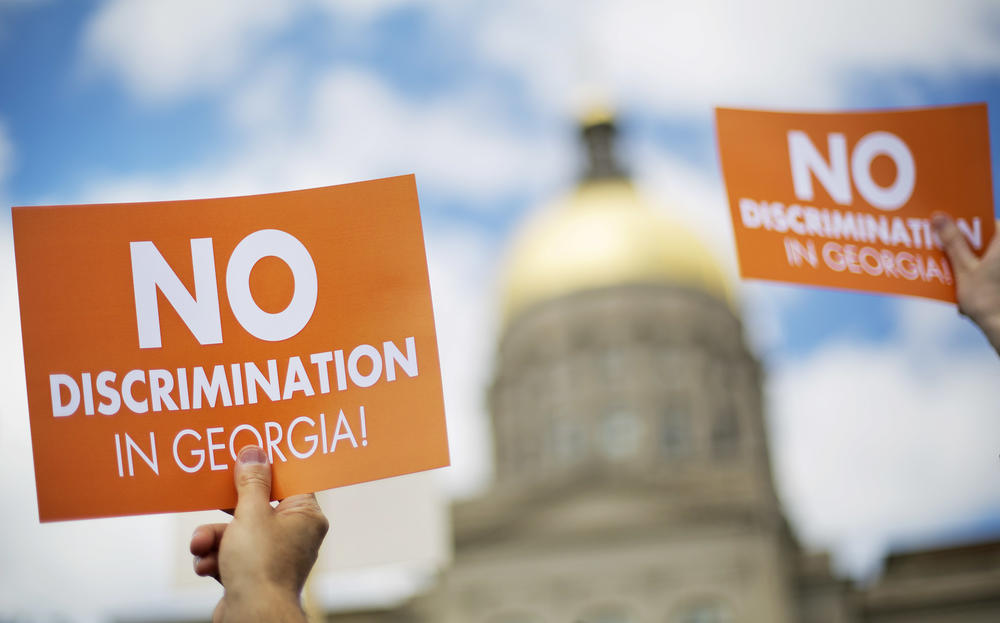Section Branding
Header Content
Expanded ‘Religious Liberty’ Bill Passes Georgia Legislature
Primary Content
Once the bill passed in the House Wednesday, the Senate picked up the measure and passed it with a vote of 37-18. The bill now heads to Gov. Nathan Deal for approval.
With a vote of 104-65 late Wednesday afternoon, state House members approved the “Free Exercise Protection Act," a bill offering a number of protections to members of religious groups.
As amended, HB 757, sponsored by Rep. Kevin Tanner (R - Dawsonville), says clergy members can refuse to perform any marriage. The bill also allows faith based groups to fire or not hire and to deny services to any individual for religious reasons.
The legislation first appeared in the House in February. At the time, the bill protected members of religious groups from being forced to marry same-sex couples.
The measure came after House Speaker David Ralston (R - Blue Ridge) called for a “Pastor Protection” measure last summer in the wake of the U.S. Supreme Court’s ruling legalizing same-sex marriage. The bill passed in the House unanimously.
In the Senate, the measure was combined with the “First Amendment Defense Act” (SB 284), sponsored by Sen. Greg Kirk (R - Americus), which expanded discrimination protections for religious individuals and organizations. The bill passed in the Senate 38-14.
The further expansion of protections for members of religious groups came in a House amendment Wednesday afternoon.
Supporters, like Rep. Jay Powell (R - Camillia), argued the bill represented a compromise.
“Today, we see a balanced approach, something that protects religious liberty without authorizing discrimination,” Powell said.
The bill does prohibit discrimination “on grounds prohibited by state or federal law.”
However, neither federal or Georgia law offers civil rights protections for LGBT individuals. That has opponents worried the bill will become a vehicle for discrimination against members of the LGBT community.
Rep. Karla Drenner (D - Avondale Estates), the first openly gay member of the Georgia General Assembly, was one of many lawmakers who spoke against the bill.
“This bill says that I am not as much of a citizen as my neighbor,” Drenner said. “This bill suggests that, at my core, there is something offensive about who God made me to be. It says that my neighbor and I are held to different standards in how we treat one another.”
From here, the bill goes back to the Senate for approval.



